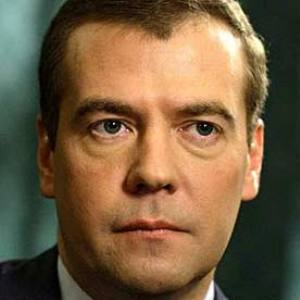Tehran and Moscow in Medvedev’s era

To predict the future of Moscow-Tehran relations, we must answer three basic questions:
1. Will bilateral ties change during Medvedev’s presidency?
2. If yes, what will be the direction of these changes?
3. Would these changes be unilateral, or both parties are willing for it?
The simplest answer is to say Medvedev will follow in Putin’s footsteps. So we can’t expect major shifts in Russia’s foreign policy in the next four years. Consequently, Russia’s policy towards Iran won’t change significantly. But if we know about Russia’s historical background, in no period two leaders have co-directed the country. So either Medvedev must be totally under Putin’s control in the next four years, or he must gradually take control of things.
In either case, Russia has to undergo changes in its foreign policy due to global developments. Definitely a part of these development concern Iran. If we accept this view, we must prepare ourselves for change.
Russian’s attitude towards relations with Iran
Since USSR’s dissolution, three approaches towards Moscow-Tehran ties have emerged. The first approach was taken by the pro-West camp that was active in the highest administrative levels during Yeltsin’s presidency. They looked negatively at closer relations with Iran, believing that these may put Russia’s relations with U.S. and Europe into trouble.
Second are veteran communists that advocate friendlier ties with Iran, since it increases Russia’s maneuver capacity against West. This group seeks formation of an anti-American front.
Third are Russians nationalists of Russia, including the radical wing of Liberal Democrat Party and moderate allies of the ruling United Russia Party. The resultant of these two nationalist groups is cautious approach towards Iran.
Besides taking these three Russian mindsets into account, we must know how Iranians view relations with Russia. In Iran there are also three approaches towards Russia. The first approach argues that Russia is unreliable, and we shouldn’t count on this country in confrontation with the United States.
Advocators of the second approach believe that despite all its weaknesses, Russia is a good support for Iran against West. Since West seeks regime change in Iran, we can’t hope for resolution of problems between Iran and United States. So as long as Iran wants to follow an independent line against West, it must use Russia and China as levers. But it seems that by overplaying Russia’s role as a second-degree global power, advocators of this approach seek to justify Iran’s uncompromising face-off with West.
The third approach which is more pragmatistic, tries to view Russia as it really is, and redefine bilateral ties based on Iran and Russia’s national interests in the region and the world.
Conclusion
The conditions are now prepared for making changes in Iran-Russia relations. Therefore, we must allow for the following issues in future of bilateral ties:
1. Russia is not enough for Iran. Any attempt to expand ties with Russia must take relations with West into consideration.
2. In Medvedev’s age, Russia will move towards nationalism, since Medvedev has more nationalistic tendencies compared with Putin.
3. Medvedev is not after confrontation with the United States and the European Union. But if that happens for any reason, he may be ready to get closer to China, Iran and India.
4. In areas such as energy market (especially gas) and Middle East (Iraq and Lebanon) and the Muslim World, Russia tends to increase cooperation with Iran. Iran is also interested in expanding bilateral ties in areas such as defense aerospace technology, and regional collaboration in the Caspian Sea and Shanghai Pact.
5. It is likely that because of his professional background as Gazprom’s chairman, Medvedev shows interest in accessing Iran’s market.

